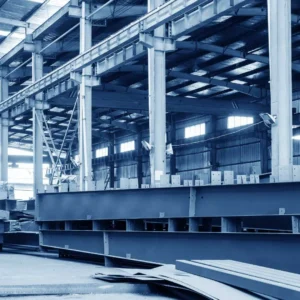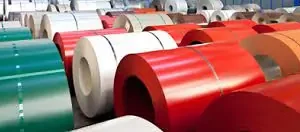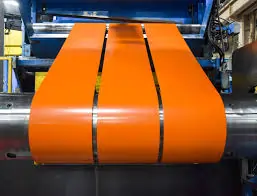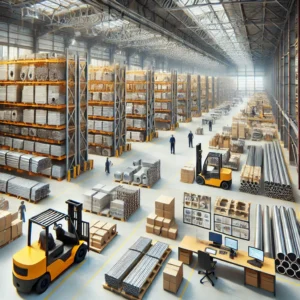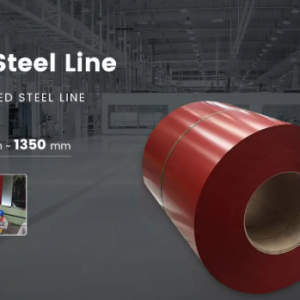Rectangular and Square Steel Pipes: Price per Meter (2025 Market Overview)
Rectangular and square steel pipes, often referred to as hollow structural sections (HSS), are widely used in construction, machinery, frames, agriculture, and general structural applications. The cost per meter of these pipes depends on the size, wall thickness, material grade, finish (galvanized or black), and the volume being purchased.
This guide provides a breakdown of prices based on standard dimensions, weight calculations, and market averages in the U.S. Midwest and global markets for mid-2025.
Common Specifications
-
Material Grades: Mild steel (Q195, Q235, ASTM A500 Gr A/B/C), and galvanized steel
-
Surface Finish: Black (uncoated), hot-dip galvanized (HDG), pre-painted (less common)
-
Manufacturing Method: Cold-formed or hot-formed
-
Length: Usually supplied in 6m or 12m standard lengths, but price here is calculated per meter
Sample Price Table (Per Meter)
Here is a representative chart of average prices for mild steel rectangular and square pipes as of July 2025:
| Size (mm) | Wall Thickness (mm) | Approx. Weight (kg/m) | Average Price (USD/m) |
|---|---|---|---|
| 20 x 20 | 1.5 | 0.89 | 1.00 – 1.20 |
| 30 x 30 | 2.0 | 1.40 | 1.60 – 1.90 |
| 40 x 40 | 2.0 | 2.40 | 2.60 – 3.00 |
| 50 x 50 | 3.0 | 5.50 | 5.80 – 6.50 |
| 100 x 50 | 3.0 | 6.90 | 7.50 – 8.50 |
| 100 x 100 | 4.0 | 12.60 | 13.50 – 15.00 |
Note: The prices above are approximate and represent mill or distributor pricing before tax, excluding transportation or handling charges. These figures are based on bulk orders (e.g., 5 tons or more) sourced domestically or through well-known international suppliers.
Galvanized Pipe Price Adjustment
Galvanized rectangular and square pipes typically command a premium of 10 to 20 percent over black steel equivalents due to the zinc coating and processing.
For example:
-
A 40 x 40 x 2.0 mm galvanized pipe may cost between $2.90 and $3.40 per meter.
-
A 100 x 100 x 4.0 mm galvanized pipe may range from $15.00 to $17.50 per meter.
The price increase depends on the zinc coating thickness (e.g., Z80, Z120, Z275) and whether the coating is internal and external.
Calculation Method for Price per Meter
To calculate your own steel pipe price per meter, follow this formula:
Step 1: Calculate weight per meter (kg/m)
Formula (approximate for square pipe):
Weight = 0.0157 × (Perimeter – 2 × Thickness) × Thickness
Or use published charts from steel mills for exact dimensions.
Step 2: Multiply by steel price per kg
If current price is $1.00 per kg (approx. $1,000/ton), then:
Price per meter = Weight × $1.00
Example:
40 x 40 x 2.0 mm pipe → approx. 2.4 kg/m
2.4 kg × $1.00 = $2.40 per meter
Price Drivers
Several factors influence steel pipe prices:
-
Size and wall thickness: Heavier pipes cost more due to higher material volume
-
Material grade: Higher-grade steel or alloyed steel costs more
-
Galvanizing or coating: Adds cost per meter depending on zinc thickness
-
Quantity: Bulk purchases lower per-meter cost
-
Origin: Imported steel (from China, India, etc.) may be cheaper but may include tariffs and freight
-
Market trends: Steel prices fluctuate with global demand, raw material costs, and shipping conditions
Midwest and Global Pricing (July 2025)
In the U.S. Midwest Steel, current pricing trends for mild steel square and rectangular pipes are:
-
Black mild steel pipes: $850 – $1,050 per ton
-
Hot-dip galvanized pipes: $950 – $1,200 per ton
Imported steel from China (e.g., Baosteel, Wanda, Tianjin) may be available FOB at $780 – $950/ton but subject to 25%+ Section 232 tariffs and logistics costs.
In terms of per-meter pricing:
-
40 x 40 x 2.0 mm black steel: $2.60 – $3.00/m
-
100 x 100 x 4.0 mm black steel: $13.50 – $15.00/m
-
Galvanized equivalents: Add approximately 15%
Conclusion
As of July 2025, the cost per meter of rectangular or square steel pipes ranges widely depending on specification and finish:
-
Low-end (small, thin-walled pipes): $1.00 – $2.00/m
-
Mid-size (common structural): $2.50 – $6.00/m
-
Large, thick-walled sections: $10.00 – $17.50/m
Bulk orders and long-term contracts yield better prices. Domestic sourcing is faster and more predictable, while imported pipes can be cost-effective if logistics and tariffs are managed.

